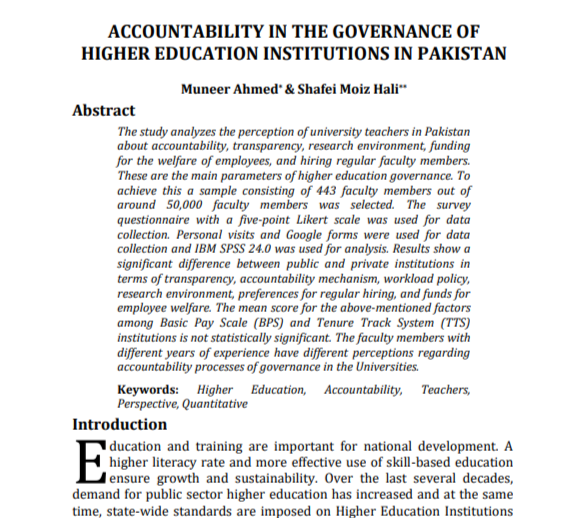ACCOUNTABILITY IN THE GOVERNANCE OF HIGHER EDUCATION INSTITUTIONS IN PAKISTAN
DOI:
https://doi.org/10.54690/jcs.v12i1.248Keywords:
Higher Education, Accountability, Teachers, Perspective, QuantitativeAbstract
The study analyzes the perception of university teachers in Pakistan about accountability, transparency, research environment, funding for the welfare of employees, and hiring regular faculty members. These are the main parameters of higher education governance. To achieve this a sample consisting of 443 faculty members out of around 50,000 faculty members was selected. The survey questionnaire with a five-point Likert scale was used for data collection. Personal visits and Google forms were used for data collection and IBM SPSS 24.0 was used for analysis. Results show a significant difference between public and private institutions in terms of transparency, accountability mechanism, workload policy, research environment, preferences for regular hiring, and funds for employee welfare. The mean score for the above-mentioned factors among Basic Pay Scale (BPS) and Tenure Track System (TTS) institutions is not statistically significant. The faculty members with different years of experience have different perceptions regarding accountability processes of governance in the Universities.

Downloads
Published
How to Cite
Issue
Section
License
Copyright (c) 2023 Journal of Contemporary Studies

This work is licensed under a Creative Commons Attribution-NonCommercial 4.0 International License.
License Terms








